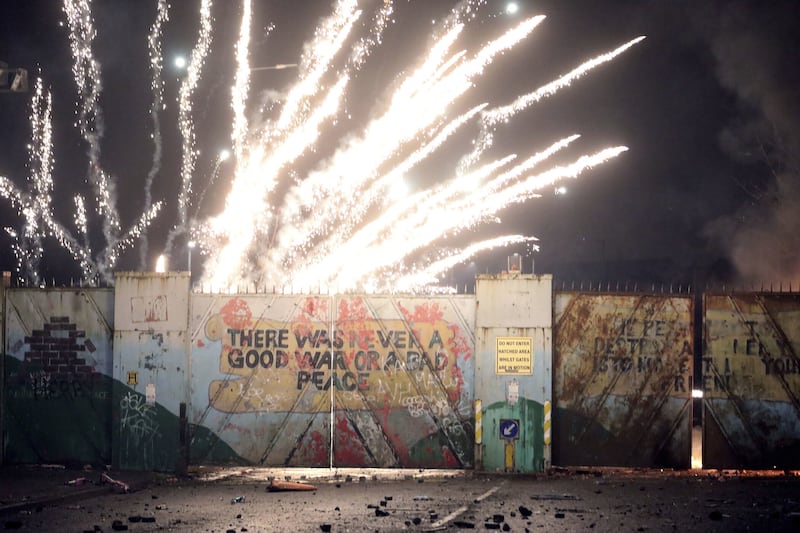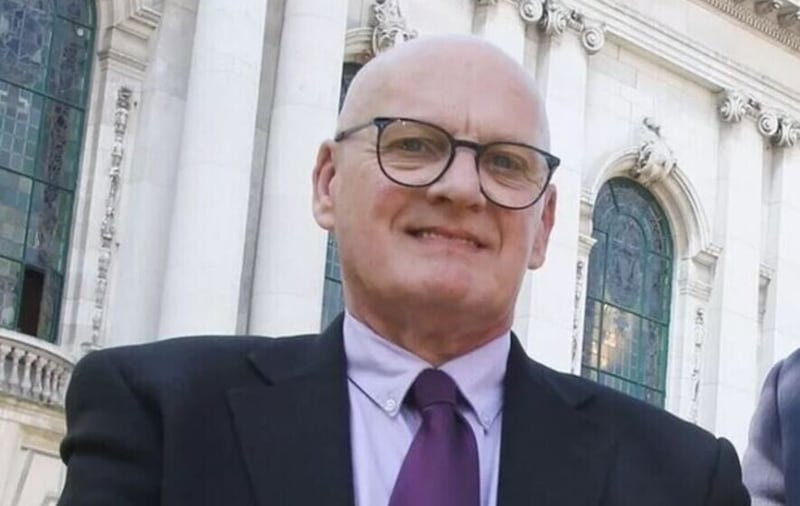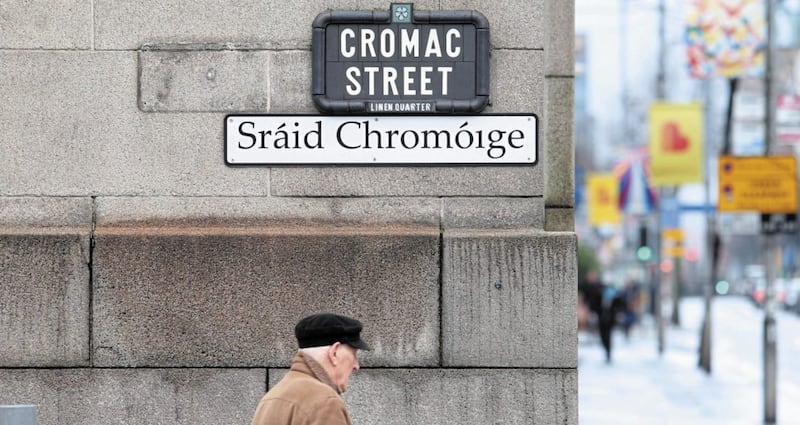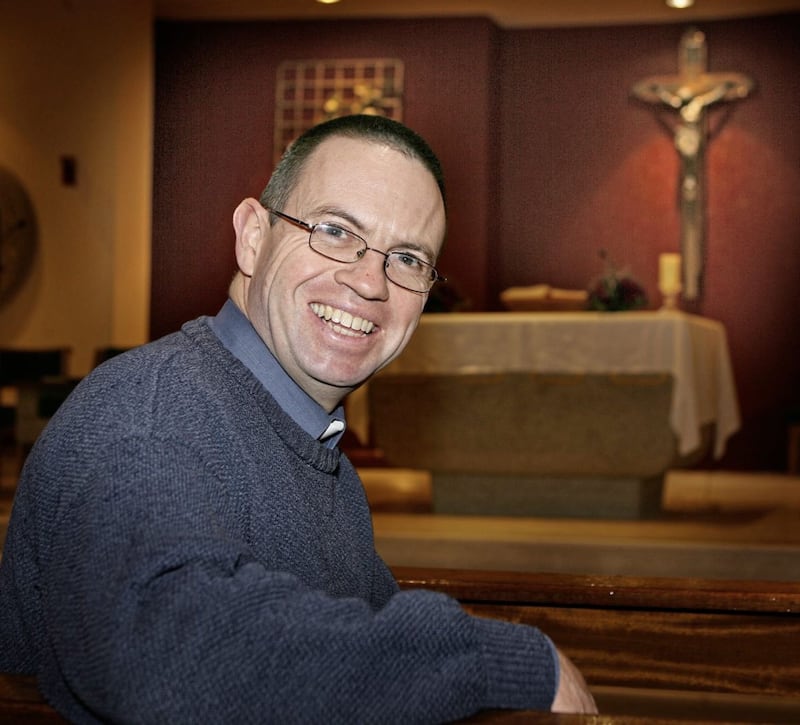AN agreement to put up more than 300 bilingual street signs in west Belfast will include part of an interface area that experienced intense sectarian rioting three years ago.
Belfast City Council’s Strategic Policy and Resources Committee agreed to erect the bilingual signs along 301 streets in the Gaeltacht area of west Belfast.
Rather than applications for every single street, the blanket approach is intended to save the council around £200,000.
Individual streets can still oppose the plans if a threshold of 15% is reached.
Lanark Way, which has a security gate between the republican Springfield Road and loyalist Shankill Road, is included in the policy.
Council information states it will be “only the portion within the Gaeltacht Quarter boundary up to the peace line wall or peace line gates”.
- Lanark Way - A flashpoint for more than 150 yearsOpens in new window
- Bilingual signs targeted in ‘hate crime’ in Belfast street where residents were split on Irish nameplateOpens in new window
- Agreement to erect 301 bilingual street signs in west Belfast sparks heated exchanges over Irish languageOpens in new window

DUP councillor for the court area, Ian McLaughlin, objected strongly, stating some people had traumatic memories of the Irish language.

“It was usually when the murderer or terrorist that murdered their loved one used to scream and squeal the famous words ‘tiocfaidh ár lá’ - whatever it was - as they left the scene of their horrendous crime,” he said during the committee meeting.
On the plans for part of Lanark Way, he said: “The residents on Lanark Way who live closest to Shankill Road haven’t been asked their opinion on this. I don’t know whether the business community on the Springfield Road has.
“No matter what way I frame this, people are going to say it’s anti-Irish language. On the contrary, I am more interested in the impact it is going to have on community relations.”
The SDLP’s Carl Whyte dismissed his comments as “a deliberate tactic to stoke up anger and fear and resentment.”
A council report also stated that “particular attention” was paid to only deliver consultation letters on the affected streets up to a peace line boundary.

Carol Bailie owns the Royal Beauty salon on the Shankill Road.
She told the Irish News she was not personally bothered by the plan, but questioned if the area was ready for it.
“I don’t think we’re quite there just yet, I think we need to get rid of some of the dinosaurs in Stormont first,” she said.
“It wouldn’t bother me in the slightest personally, but I can’t read Irish obviously.
“I would say it’s probably fair enough to have it up to the security gate.”
Remembering the violent scenes from November 2021, she said: “It’s quiet enough here now, that’s the way it should be because you don’t really want that drama.
“I haven’t seen any trouble there in a long time, but I think it’s more out of boredom that kids get involved in anti-social behaviour.”
John Brown, a bricklayer and resident on the Shankill Road said: “If they’re on the Springfield Road side then I don’t think there will be any problem.
“To be honest with you, I thought there already was Irish language signs on that side of the fence.
“Obviously if those signs were installed on the Shankill side it would become a story, somebody would put graffiti over it or whatever.
“I honestly don’t think anyone cares though, whatever happens on the Springfield Road side is for the residents there.”

Fr Martin Magill from the St John’s parish on the Falls Road has been involved in reconciliation work in the area.
“I’m aware the situation in Lanark Way is a sensitive one,” he said.
“Obviously we still have the barrier there, the so-called peace wall, so it does give an indication of some of the difficulties we face.
“I’m aware of councillor McLaughlin’s position on it. There’s obviously a certain amount of fear of what it might mean for people, even though it doesn’t go beyond the Springfield Road side of that barrier.
“Where I would be coming from would be a different place.
“I have an interest in Belfast street names, I would be looking at whether this could be an opportunity to enrich our understanding of the history.
“Even the word Lanark is certainly not Irish, it’s coming from a Celtic language, perhaps Breton itself.
“If we could get beyond some of the history we have around the language, it could be a very enriching experience generally.
He added: “I’m aware of the Turas project run by Linda Ervine in east Belfast, personally I think that’s been really helpful in changing attitudes towards the Irish language.
“There’s such a richness with that. So I do hope that we can find ways to embrace this development.”








